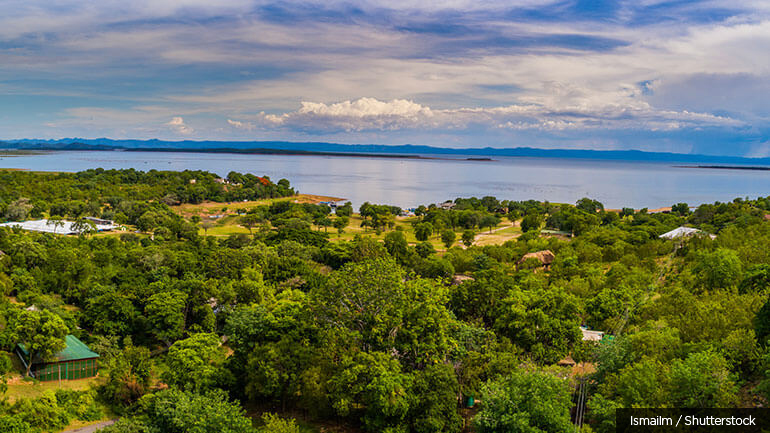
In Zimbabwe, land degradation costs the country 6.3 percent of GDP, with models predicting an even warmer and drier climate in the future. Nearly 70 percent of the population residing in rural areas depend on agriculture and natural resources to sustain their livelihoods. Yet, these communal lands are often most impacted by severe environmental degradation. Additionally, the north-western regions of Zimbabwe are particularly vulnerable to climate hazards and unsustainable land and natural resource management, causing problematic interactions between farming communities and the rich biodiversity and ecosystems.
PROGREEN’s knowledge program in Zimbabwe aimed to evaluate and prioritize integrated landscape management interventions for scaling up climate finance. The main goal was to value and make the case for investing in ecosystem services within its Country Climate and Development Report (CCDR). Using biophysical modeling, the team produced a national assessment and investment case for ecosystem services in Zimbabwe. Additionally, the program team engaged stakeholders in sub-catchment land-use planning to identify landscape interventions that enhance the flow of ecosystem services from natural and cultivated lands, with a specific focus on water-related ecosystem services.
This grant supported three inputs to the Zimbabwe Country Climate and Development Report published in Fiscal Year 2024 before the program's closing. First, the national assessment and investment case for ecosystem services in Zimbabwe quantified the benefits of investing in climate-smart agriculture and landscape restoration versus the costs of a business-as-usual scenario. Second, it piloted and evaluated the delivery of digital climate advisory services to farmers. Finally, it hosted a national consultation and capacity-building workshop in the Nyadire sub-catchment with 25 government officials from the departments for agriculture, livestock, irrigation, forestry, water, mining, infrastructure, parks and wildlife, environmental management, and education.
Additionally, the Zimbabwe country team will advocate for the integration of knowledge supported under this grant in the development of its second National Development Plan in FY25 and 2026 Nationally Determined Contribution.